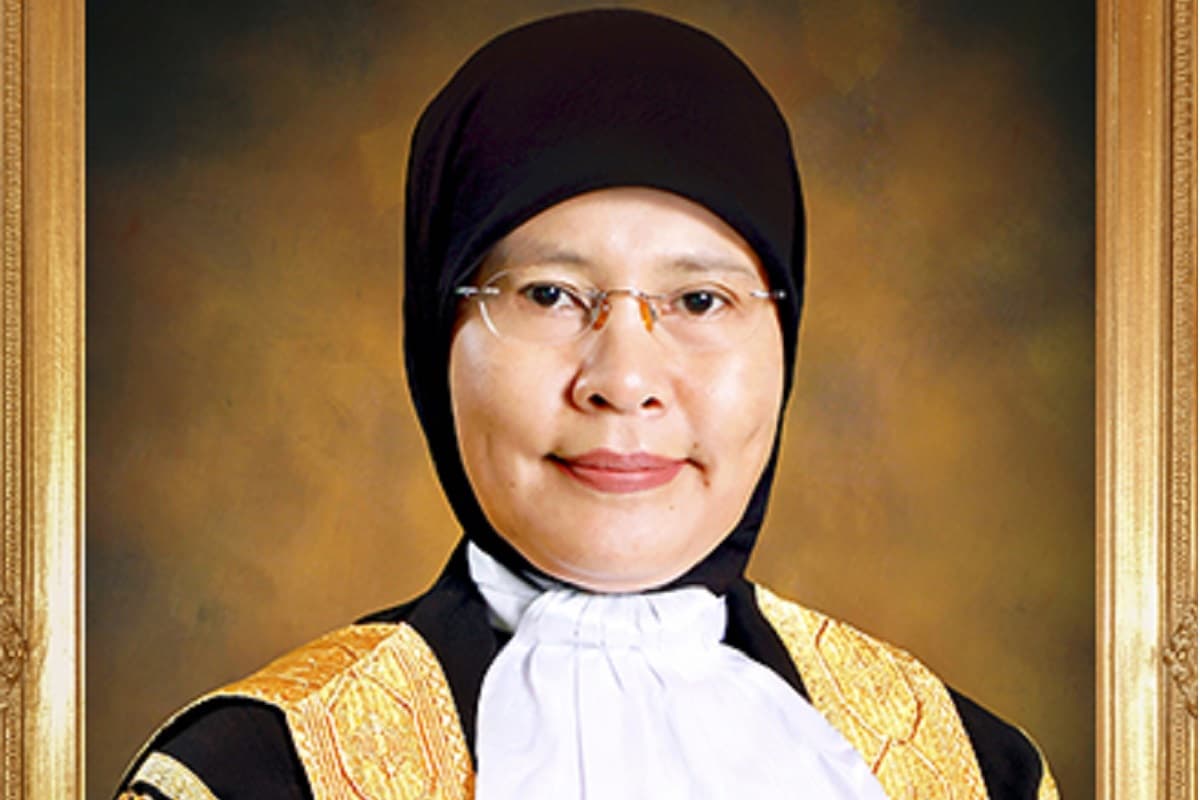
DECISION ON ENCLOSURE 300 (Recusal)
[1] The appellant, during the course of the hearing of these appeals, has filed an application to recuse me from hearing these appeals and for the appeals to be reheard before a different panel. The application is presented in Enclosure 300.
[2] The grounds in support of the application are firstly, a Facebook post dated 11.5.2018 by my husband, Zamani bin Ibrahim and secondly, a letter from the Bar Council of Malaysia stating that I, as Chief Justice, had no objection if lawyers would apply for adjournments to attend an event called Walk of Justice on 17.6.2022 relating to Justice Nazlan.
[3] The respondent submits that this application is mala fide and filed deliberately to scuttle the progress of these appeals as the two grounds relied by the appellant relate to events that happened four years and three months ago respectively.
[4] It was contended by the appellant that since no affidavit in reply was filed, the truth of the contents of the exhibits are not in dispute. In my view, that does not mean that the legal threshold for bias and recusal has been met. The absence of an affidavit in reply is immaterial because recusal is essentially a question of law.
[5] The Federal Court, in Public Prosecutor v Tengku Adnan bin Tengku Mansor [2020] 5 MLJ 220, has recently affirmed that in order to recuse a judge the test is the ‘real danger of bias test’.
[6] The question is whether the grounds of the application to recuse successfully raise a real danger of bias. It is my view, based on decided cases, that the test has not been established.
[7] The first ground seeks to associate the views of my husband made four years ago in his Facebook such that it has now raised the alarms of a real danger of bias. There is a case directly on this point, that is, the judgment of the Federal Court of Australia in Kaycliff Pty Ltd v Australian Broadcasting Tribunal and Another (1989) 18 ALD 782 (Kaycliff). This case stands for the proposition that the views of a spouse of a judge cannot in itself be used as a ground for recusal.
[8] In that case, it was argued, among other things, that the chairman of the tribunal in that case ought to have been recused because of certain views expressed by her husband publicly elsewhere. The Federal Court unanimously held that this did not raise any suspicion of bias and in so holding, said as follows:
“The primary judge expressed the view that: '… it would be wrong to conclude that a casual statement by a husband of his views on a matter under consideration by a tribunal of which his wife is a member gives rise to a reasonable apprehension that the husband's views might have been formed after discussion with his wife, or might be communicated to his wife.'
We agree. Although we have found no authority directly bearing on the point, it appears to us that statements made outside and without the authority of a court or a tribunal by persons who are not its members cannot, in general, disqualify it from proceeding. Persons of considerable public credibility may on occasions make gratuitous statements as to a court's or a tribunal's established attitudes, perhaps even as a stratagem to create embarrassment. We think there are dangers in accepting the doctrine that statements of that kind can prejudice the right or affect the duty of a judge or tribunal member to sit.”
[9] In another case called Locabail (UK) Ltd v Bayfield Properties Ltd [2000] 1 All ER 65, the English Court of Appeal, in considering the ‘real danger of bias test’, noted as follows:
“10. … In any case where the judge's interest is said to derive from the interest of a spouse, partner or other family member the link must be so close and direct as to render the interest of that other person, for all practical purposes, indistinguishable from an interest of the judge himself.”.
[10] See also: United Cabbies Group (London) Ltd v Westminster Magistrates’ Court [2019] EWHC 409 (Admin).
[11] Thus, in proving the real danger of bias test, it must be shown that the views expressed by third party, in this case, the spouse, actually impacted on the views of the judge sought to be recused as opposed to simply presupposing that just because certain general views were expressed as a citizen they are automatically the views of the judge presiding. In other words, the fact of a ‘spousal relationship’ is not by itself a reason to ascribe the spouse’s views to the judge.
[12] Applying Kaycliff to Enclosure 300, it follows that (a) the fact of spousal connection in itself does not give rise to either actual or apparent bias, (b) there is no nexus between the Facebook posting and the subject matter of these appeals.
[13] Again, it is reiterated that the Facebook posting occurred four years ago when this case was not even in existence. Simply put there is absolutely no nexus between the Facebook post and the present appeals.
[14] The second ground, the letter, is a non-starter. The letter clearly states that I had no objection should lawyers seek to apply for the adjournments of their cases from the panels hearing their cases. This was not a blanket grant of adjournments. It was simply to say that the different panels and different chairs retain their discretions to grant or refuse adjournments. It was a standard letter. I do not see how this discloses any fear or real danger of bias sufficient to recuse me.
[15] Finally, the fact that certain other judges recused themselves in cases involving the appellant in this case does not itself present a reason for me to recuse myself in this case.
[16] In the circumstances, Enclosure 300 is without merit and is dismissed.